The web Browser you are currently using is unsupported, and some features of this site may not work as intended. Please update to a modern browser such as Chrome, Firefox or Edge to experience all features Michigan.gov has to offer.
Grad students tackle sustainability one Michigan community at a time
September 11, 2023
When it comes to climate action and sustainability, a team of Michigan graduate students proved to be jolly good fellows this summer.
Nine students devoted 10 weeks to the Catalyst Leadership Circle Fellowship, funded by the Michigan Department of Environment, Great Lakes, and Energy (EGLE) and administered by the University of Michigan’s Graham Sustainability Institute in collaboration with Michigan Green Communities. The annual program provides select Michigan communities statewide the means to tackle environmentally focused projects they wouldn’t otherwise be able to. Final project presentations by the fellows are archived to equip other communities to learn from their experiences and tackle similar projects. This was the program’s second year. Last year’s projects are archived here, with this year’s projects soon to be added.
The fellowship assigns to each chosen community a grad student fellow who works with a local mentor to carry out a locally selected project. Technical assistants provide subject matter expertise through the Graham Sustainability Institute.
To qualify for consideration, communities must earn a gold or silver certification in the annual Michigan Green Communities Challenge, and students must have at least one semester remaining in a graduate program anywhere in Michigan.
Sarah Lee, Graham clean energy engagement specialist, coordinates the fellowship. She said most participating students are in sustainability-related programs, but some study public policy, urban planning, public health, and other fields. The competitive, paid fellowship provides hands-on, applied research experience.
Students work out of Ann Arbor and visit their assigned communities and others around the state.
Meet some of the CLC fellows who spent their summer making a positive difference across Michigan:
Ann Arbor: Natalie Britton
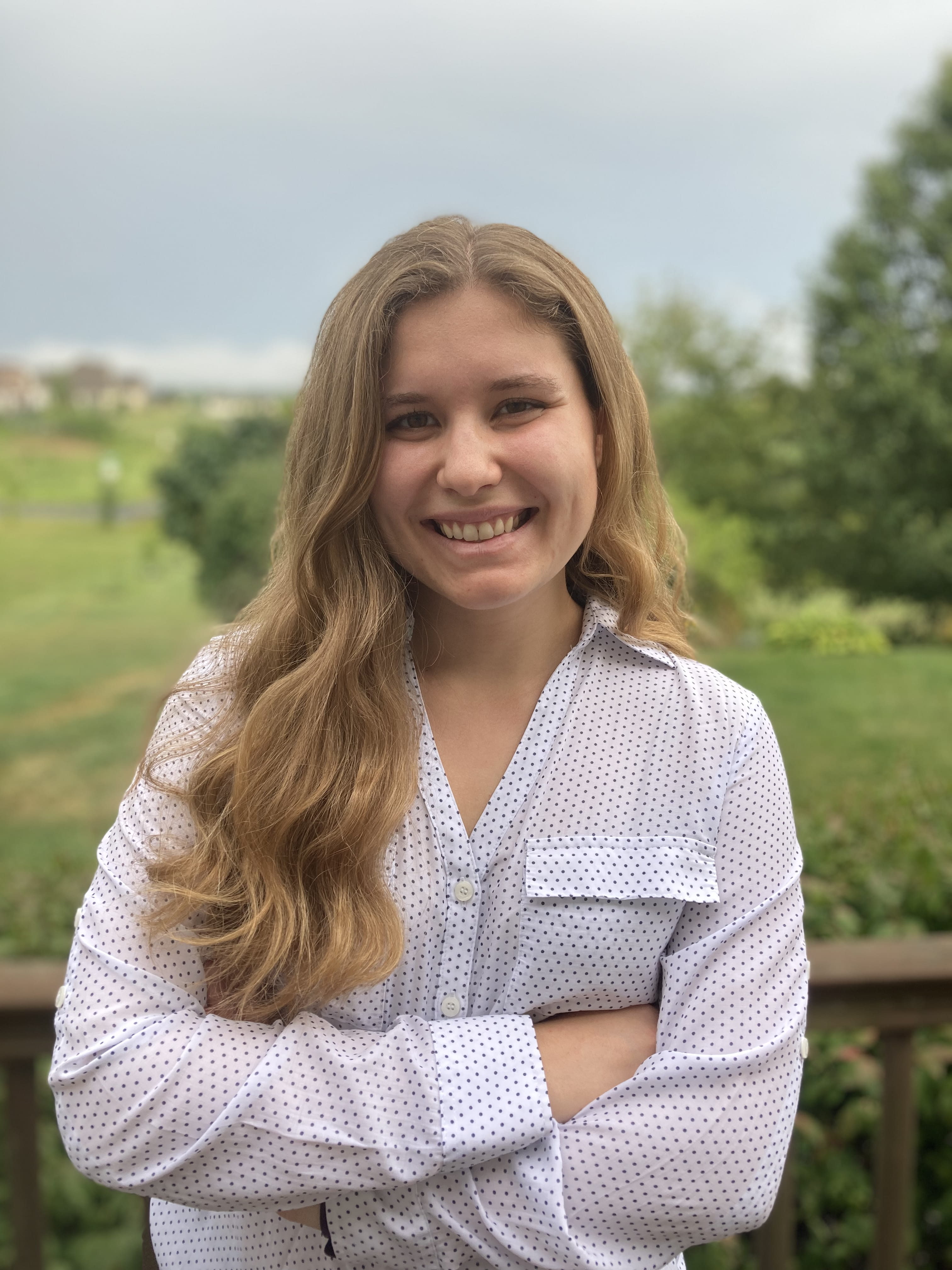
Natalie Britton
Natalie, from Allentown, Pennsylvania, lives and works in Ann Arbor, where she plans to graduate in spring 2024 with a master’s degree in environmental justice from the University of Michigan’s School for Environment and Sustainability. She earned her undergraduate degree in economics from the University of Pittsburgh.
In her fellowship with the City of Ann Arbor, Natalie worked with mentors Zach Waas Smith, Joe Lange, and Carissa Ebling in the Office of Sustainability and Innovation.
She’s interested in Geographical Information Systems for local land rights work, furthering access to “vacant” land in cities for growing food, securing land rights for Indigenous peoples, etc.
The project: To support the city’s Green Rental Housing Program, Natalie developed materials to educate renters on saving energy at home and provide resources for renters who want to do basic weatherization. The tool kit contains flyers focused on “how-to” information, along with tips on distributing the information effectively through strategies like peer-to-peer engagement.
In her own words: “I came into this project with a justice lens because renters often do not have as much autonomy over their living space as homeowners do. While I believe that incentivizing landlords to make energy efficiency updates is essential to furthering energy equity, I hope this tool kit can be useful in places where there is not yet any incentive infrastructure and that it can empower renters to have more control over their energy bills and comfort at home.”
Ferndale: Nora Bundy
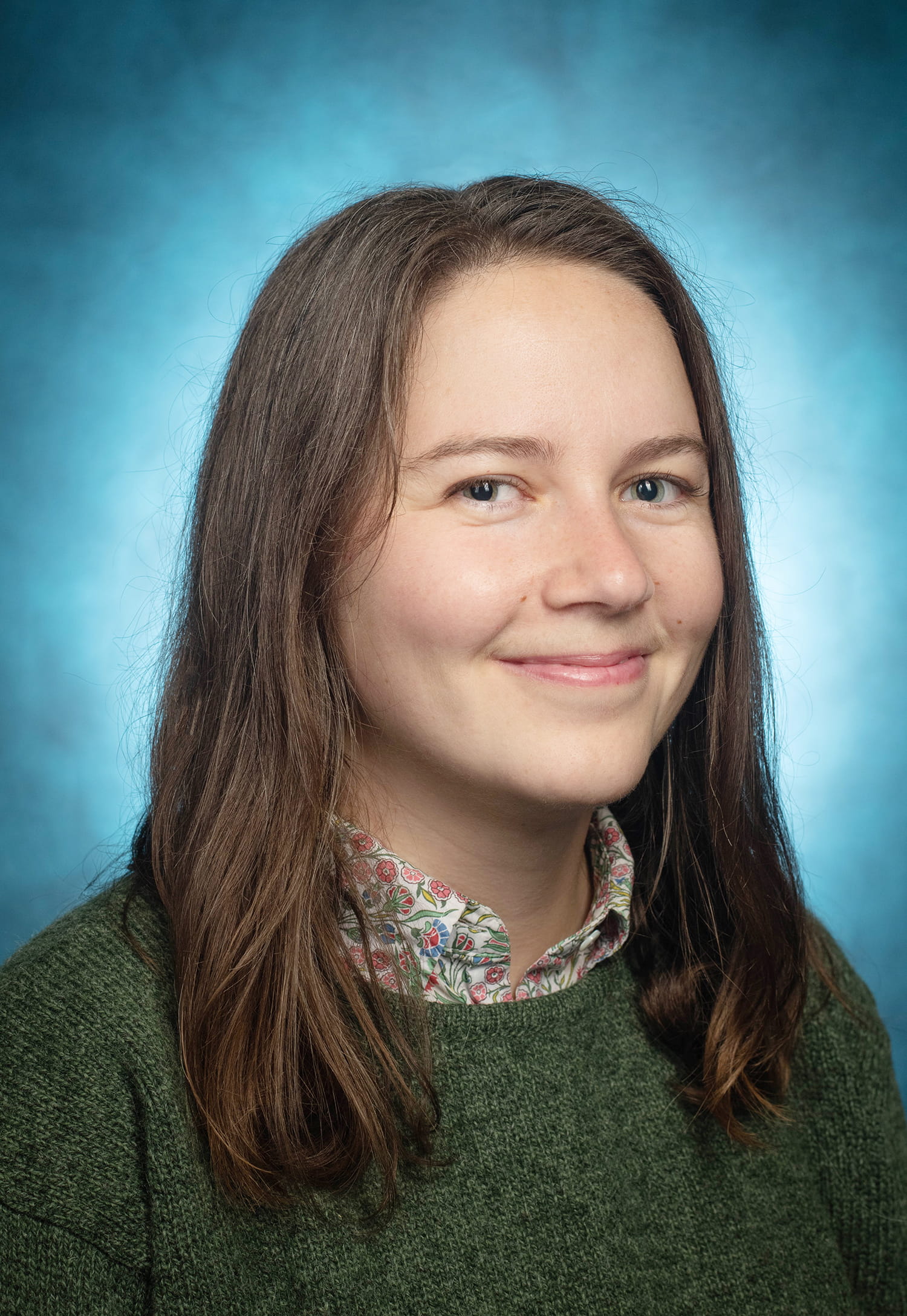
Nora Bundy
Nora expects to earn her Master of Urban and Regional Planning degree from the University of Michigan’s (UM) School for Environment and Sustainability (SEAS) and Taubman College of Architecture and Urban Planning in 2025. She holds bachelor’s degrees in psychology and German studies from Lewis & Clark College in Portland, Oregon, from 2013.
Originally from New England, Nora now lives in Ann Arbor. She plans a career in community-engaged resource recovery and zero-waste planning.
For her fellowship, Nora worked with the City of Ferndale and mentor Claire Dion, zero waste program coordinator.
The project: Nora provided support in fulfilling the recommendation of Ferndale’s 2020 Downtown Waste Reduction and Recycling Plan to implement tiered sanitation rates for the central business district. This involved three primary workflows: data collection and analysis of current system funding, outreach to communities already using various tiered rate structures, and communication with Ferndale city officials and businesses.
In her own words: “The methods used here are applicable to the process necessary for any community looking to implement a similar system. I was lucky to receive this fellowship and that Ferndale was doing a project that closely aligned with my interests. Through EGLE's support, CLC Fellows are building an incredible sustainability resource bank for communities within Michigan and elsewhere. Hopefully, we will begin to see accelerated changes at the local level as a result of this work.”
Traverse City: Bridget Corwin
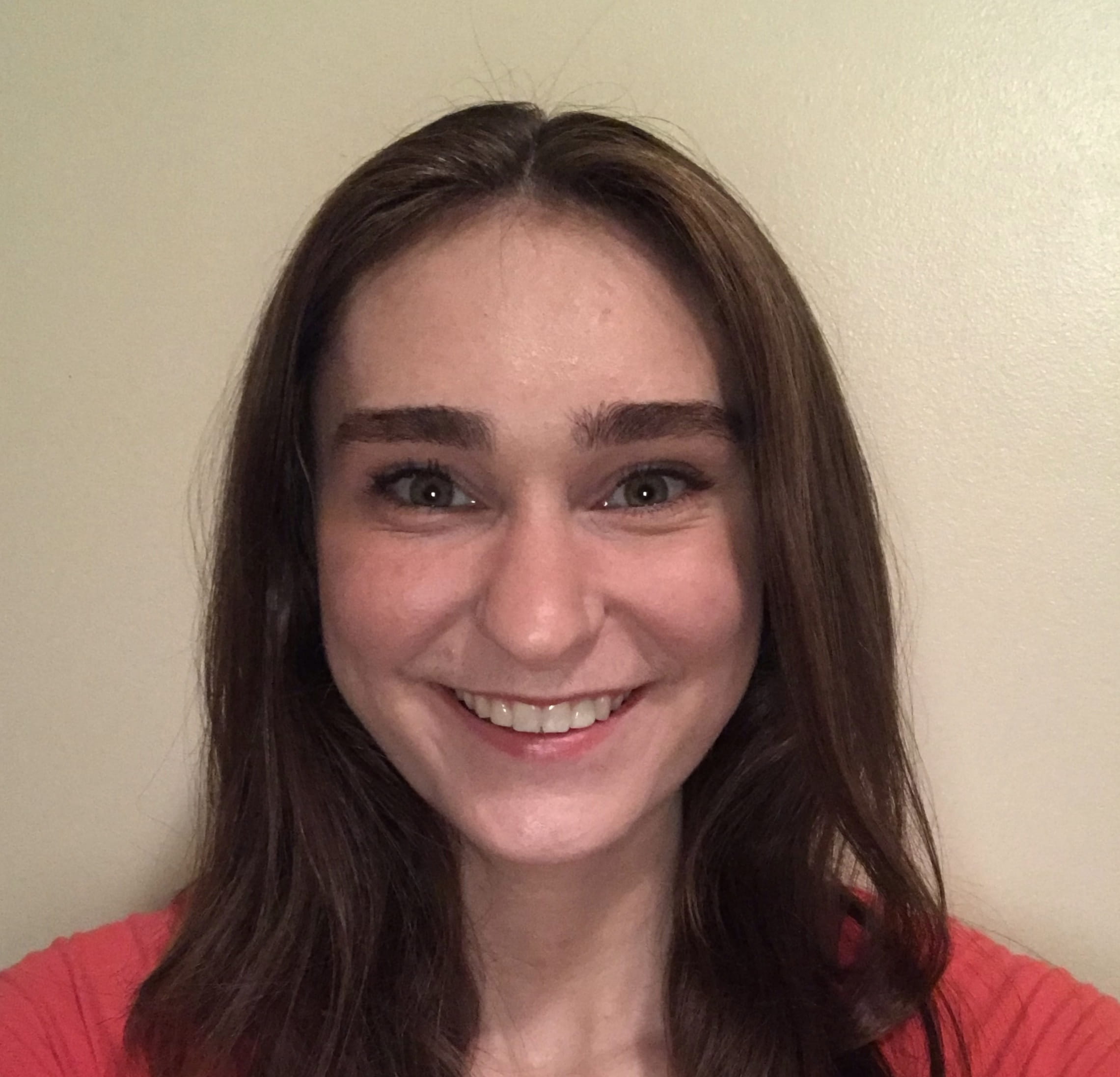
Bridget Corwin
Bridget is working toward Master of Science and Master of Public Policy degrees in May 2025 from UM’s SEAS program and Ford School of Public Policy. She earned undergraduate degrees from UM in political science and the Program in the Environment.
Originally from Beverly Hills, Michigan, Bridget lives in Ann Arbor. She plans a career in energy or government.
Bridget worked with Traverse City and mentor Jacob Hardy, sustainability and key accounts manager at Traverse City Light & Power (TCLP).
The project: TCLP, the city’s municipal electric utility, would like to see more residents participating in their many programs supporting home electrification and energy efficiency. Bridget worked with TCLP and GreenHome Institute to plan new community engagement strategies that highlight the health, economic, and environmental benefits of sustainable energy practices. This included a guide to putting on an interactive energy fair and a timeline for engaging Traverse City youth.
In her own words: “Over a third of the energy we use in our homes goes to waste. That’s a lot! Programs like TCLP’s are essential in helping residents save money, support their health, and protect the environment. Throughout this fellowship, I learned so much about the importance of communication and engagement in ensuring that communities understand and can access the benefits of these programs. There is so much exciting sustainability work being done by local governments across Michigan!”
Grand Haven and Rockford: Graham Diedrich
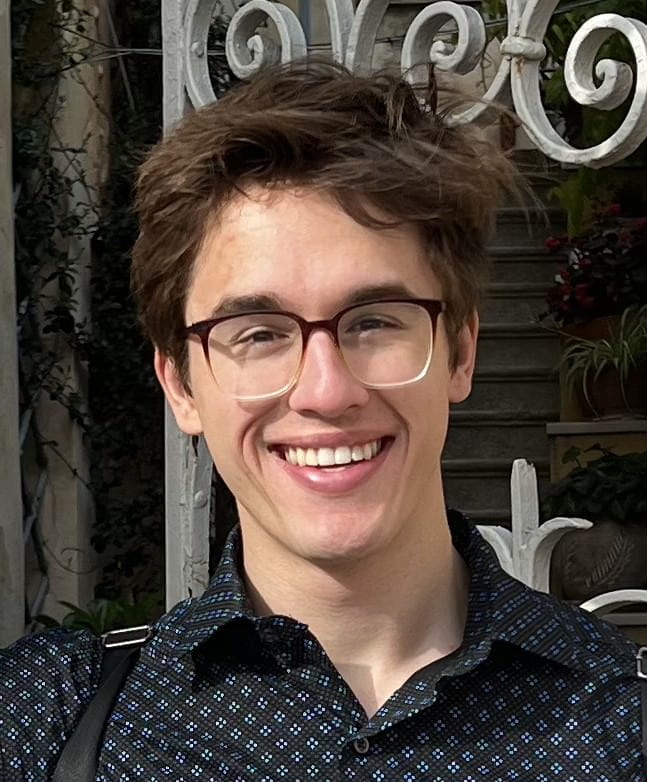
Graham Diedrich
Graham is working toward his master’s degree in data science at Michigan State University (MSU). He also holds a Master of Public Policy degree from MSU and earned his bachelor’s degree in international relations from MSU’s James Madison College. He plans to work in environmental policy with a focus on energy systems and decarbonization.
Graham worked with two fellowship communities: the City of Grand Haven, where his mentor was City Planner Brian Urquhart, and the City of Rockford, with three mentors: City Manager Thad Beard, Councilperson Cheryl Scales, and Rockford Sustainability Committee Chair Mindy Miner.
The project: Graham developed greenhouse gas (GHG) inventories for both cities. His primary deliverable was a report outlining the methodology, data collection, and policy implications of the three inventories he produced. This resource serves as a useful guide for other municipalities seeking to develop their own GHG inventories, as it enables local governments to build upon the methodologies and lessons learned from the Rockford and Grand Haven projects, potentially saving time and resources.
In his own words: “Progress begins with the acknowledgement that issues exist and demand to be solved. By pursuing GHG inventories, local governments can prioritize strategies to reduce emissions, increase efficiency, minimize costs, and bring prosperity to their residents.”
Meridian Township: Sam Fleckenstein
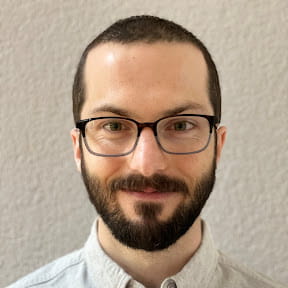
Sam Fleckenstein
Sam is a master’s degree student in UM’s School for Environment and Sustainability, studying environmental justice and sustainable technology. He expects to graduate in 2024. He earned his undergraduate degree in computer science from Case Western Reserve University in Cleveland, Ohio.
Originally from Olympia, Washington, Sam lives in Ann Arbor. He plans a career in local government sustainability and equity.
Sam worked with mentor LeRoy Harvey, Meridian Township’s environmental programs coordinator.
The project: Sam created two educational campaigns for residents: one about plants native to Meridian Township, and one about keeping lakes and shorelines healthy. These campaigns are built around actions residents can take and are delivered monthly as a printable pamphlet, a social media post, and an article for the local Green Gazette ecological newsletter.
In his own words: “I learned a surprising amount about how to structure a successful communications campaign. Creating effective communications material is essential, but it’s as important to organize the material to be as easy as possible to deliver. Local government employees have an incredible amount of work on their plate, and this ensures the campaign can go out without adding to that.”
Holland: Katelyn Heflin
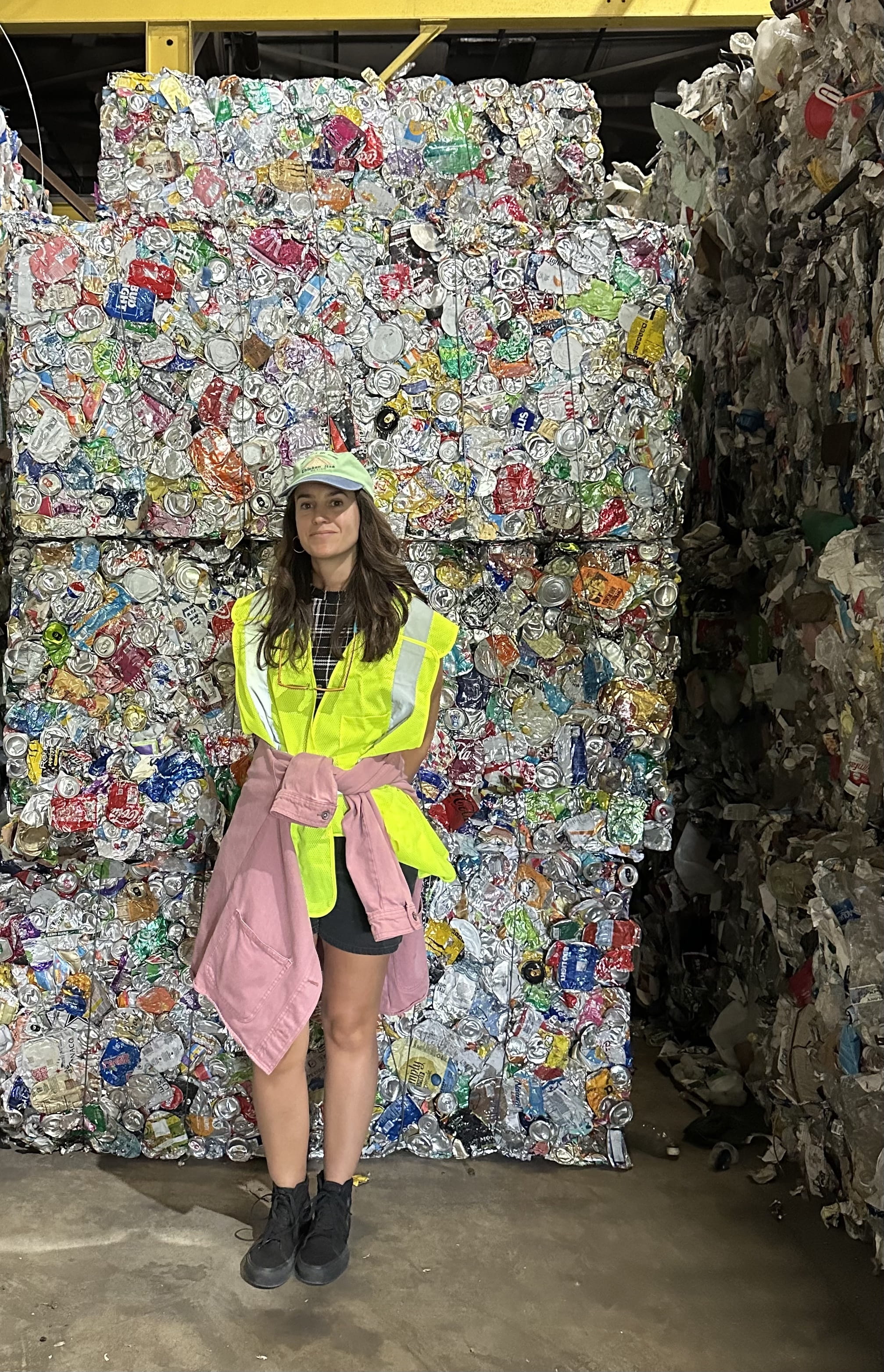
Katelyn Heflin
Originally from McAllen, Texas, and currently living in Ann Arbor, Katelyn plans to graduate in April 2024 with a Master of Science degree in environmental policy from UM’s SEAS program. She earned her undergraduate degree from Texas A&M University in international studies (environmental track).
Katelyn plans a career in materials management policy – advocacy or working for local, state, or federal government. Specifically, she intends to work on extended producer responsibility for plastic packaging, holding manufacturers fiscally responsible for the plastic packaging they put into the market as well as bolstering reduction behaviors and reuse systems.
She worked with the City of Holland and mentor Dan Broersma, sustainability manager.
The project: Developing a “Reuse, Recycle Starter Kit” including tailored educational materials for Holland residents around the carbon and economic benefits of recycling. Meant for use as a guide for local governments that want to act, the kit contains information on a funding opportunity to transition local businesses and public schools from single-use plastic wares to reusables. The kit also covers how to calculate community waste management impacts and shares editable access to all of the tailored educational materials, in English and Spanish, that Katelyn made for Holland. Lastly, the kit makes the case for considering expansion of recycling programs to multifamily housing and shares grant opportunities specific to multifamily recycling.
In her own words: “I have learned so much about the important work local governments do and how they are so well positioned for real, impactful change. The CLC Fellows had the opportunity to tour all of the communities we were working with over the summer. From tours of materials recovery facilities to wastewater treatment plants to solar farms and dams, I was inspired by all of the ways cities integrate sustainability into their operations. Working with the City of Holland, I was happy to help bolster their fairly new curbside recycling program with educational materials that we hope will resonate with residents.”
Canton Township: Megan McLaughlin

Megan McLaughlin
Livonia native Megan is working toward her Master of Science degree in geospatial data science from UM’s SEAS program and earned her bachelor’s degree from UM-Dearborn in urban and regional studies.
After graduation, she plans to work for a climate adaptation research institution to model climate projections and propose adaptation strategies to help reduce negative health risks to communities.
Megan worked with Canton Township and mentors David Norwood, township deputy director, and Zachary Michels, associate planner.
The project: There is an increasing need to manage public and private trees and long-term planning is an effective tool to help reach desired outcomes and strengthen common understanding of municipal goals and priorities. Canton Township is currently embarking on this effort and sought support on outlining the typical components of an urban forestry master plan. To that end, we designed a fillable planning tool that provides best practice considerations and outlines data and information that typically funnels into an effective comprehensive plan.
In her own words: “This fellowship has provided me with a better understanding of the status of sustainability initiatives across the state of Michigan. The structure of the fellowship encouraged a lot of bonding among the cohort which has been a highlight of my experience. I’m excited about the new expertise I have in urban forestry and being introduced to the support needs communities are faced with. Canton was a great community partner and everyone I interacted with was very supportive and encouraging.”
Lansing: Audrey Wilfong
Audrey Wilfong
Audrey is a master’s degree student in the UM School of Public Health, expecting to graduate in winter 2024. She earned her bachelor’s degree in public policy from the University of California, Riverside, in 2022. An Ypsilanti resident from Eastvale, California, she’s interested in policy work that promotes healthful behaviors to benefit both humans and the environment.
Audrey’s fellowship teamed her with two mentors, Sustainability Manager Lori Welch and Operations Specialist Erin Buitendorp, in the City of Lansing.
The project: Audrey worked to create a fats, oils, and grease (FOG) ordinance for the city. The goal is better inspection and maintenance enforcement for grease interceptors/traps at city restaurants to prevent FOG buildup in sewers, backups into homes and restaurants, and sanitary sewer overflows. She also has created outreach materials on FOG for restaurants and residents that will be available on the city's website.
In her own words: “This fellowship taught me that the most mundane-seeming sustainability projects can be some of the most important. Sewers and the problems within them are often ‘out of sight, out of mind,’ but their public health, environmental health, and financial implications mean that work has to be done to promote the well-being of residents. I am grateful to have had the opportunity to work on a project that brought an underground issue to light.”
Interested in the CLC Fellowship?
Communities with gold or silver status in the Michigan Green Communities Challenge should reach out to Sarah Lee, sarle@umich.edu. Communities with bronze status may reach out to Danielle Beard, dbeard@mml.org, who leads an accelerator cohort through the Michigan Municipal League.
Graduate students in Michigan with at least a semester remaining after the fellowship summer can find information online or contact Sarah Lee, sarle@umich.edu. Applications open around December or January, and applicants must submit an essay, resume, and cover letter.
About the Catalyst Leadership Circle
The CLC is a group of local governments in Michigan working together through peer networking and capacity building opportunities to increase sustainability and reach climate and energy goals. Membership is open to communities with a silver or gold designation in the Michigan Green Communities Challenge. Members have bimonthly peer-sharing convenings with other local leaders, share of resources and opportunities, and are eligible to host a CLC fellow. UM's Graham Sustainability Institute leads the CLC in collaboration with Michigan Green Communities and EGLE.
